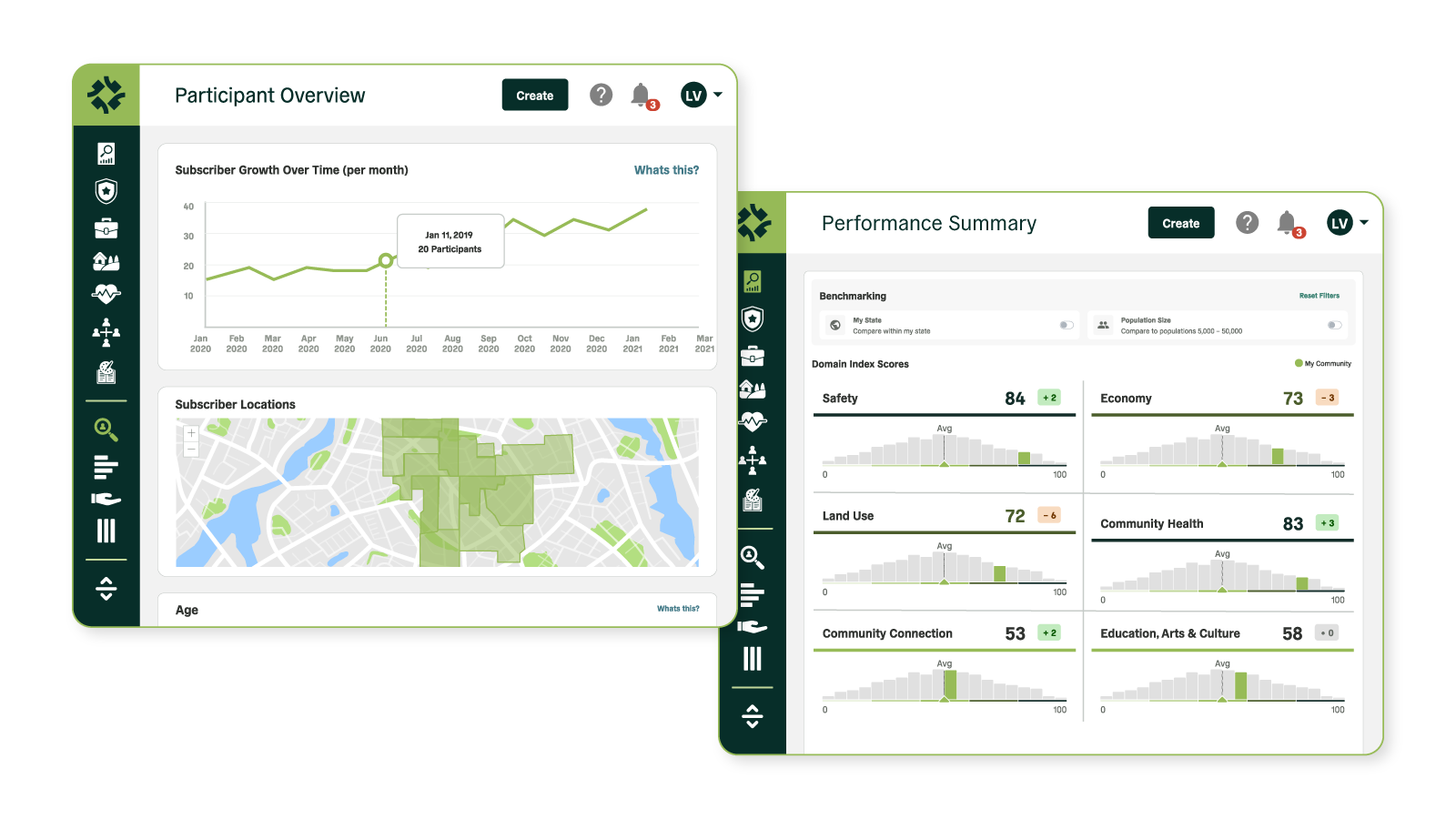Equity and Inclusion: Taking the Next Steps Forward
By Polco on March 26, 2021
.png)
-Polco Learning Lab Webinar with Cory Poris Plasch-
It has never been more important for local government leaders to empower underrepresented voices.
With national discussions on race and equity, cities around the nation are working harder than ever to create more welcoming communities. Many are also ramping up digital engagement efforts to be more inclusive.
How do cities implement new steps toward equity and inclusion? What tools and resources are available? How can resident engagement help?
To begin finding answers, we spoke to Chanté Mitchell, the Program Director for Engaging Local Government Leaders (ELGL). Mitchell oversees Resiliency and Equity-focused cohort programming along with the Local Government Diversity Dashboard.
We also interviewed Councilwoman Tameika Isaac Devine, who serves The City of Columbia, South Carolina, a National League of Cities (NLC) member city. She is a founding partner in the law firm of Jabber & Isaac, PA, where she practices in the areas of real estate, probate and business transactions. She is the first African-American female to serve on City Council and the first African American to be elected At-Large in 2002.
Both of these local government leaders have a strong passion for community equity and inclusion.
Polco’s Vice President of Strategic Development Cory Poris Plasch interviewed Mitchell and Devine about their experiences with equity work. In this discussion, they share tangible next steps to making local governments more inclusive.

Looking Through An Equity Lens
Following events in 2020, concerns over equitable policing and inclusive government have taken a national stage. As Mitchell points out, local governments across the country are beginning to respond.
“With the national discourse, people are looking for bolder change. They have bigger and more critical questions. A lot of cities are moving towards a racial equity lens,” said Mitchell.
Indeed, more communities are having these conversations than in past years.
“I’ve always tried to elevate conversations of equity and inclusion but probably not as boldly as I have in the last year,” said Devine.
An Overall Vision for the Community
There have been many successful efforts by municipal organizations to take action to diversify the workplace. For example, many cities are establishing Equity Offices or hiring an Equity Coordinator. Municipalities are evaluating the organizational diversity, as well as the experiences of staff of color.
These can be good steps to start with when developing a more inclusive local government workplace. However, for equity and inclusion to successfully thrive in your city, Mitchell says local governments must adopt and support the value throughout the organization, rather than keeping matters of inclusivity isolated to a lone equity coordinator.
“We have to do our best to break down some of those silos to think about what equity looks like in each department,” said Mitchell.
Preparing Residents for Courageous Conversations
Mitchell and Devine are intentional in how they prepare residents for courageous conversations about race. Having honest conversations about race and equity is uncomfortable for most people. But Mitchell and Devine say the best way to move forward is to confront this discomfort and encourage dialogue.
In her role with ELGL, Mitchell works with many communities across the nation. She is also part of an equity and inclusion cohort facilitated by ELGL and Polco. The ELGL cohorts are local government professional development programs that bring together practitioners to learn, create solutions, share resources, and build long-term professional relationships.
Local governments that engage their residents most successfully around race seek to build internal buy-in first, says Mitchell.
“Build internal buy-in for the work in local government. Have your value proposition ready and be clear with department head leaders and city managers about why the work is important and what value add we can bring to this work,” said Mitchell.
In the City of Columbia, Devine started a community discussion about a book called The Color of Law: How Governments Segregated America. The book explores the history of inequitable local government policies. Devine finds that examining history helps people to have more productive conversations about solutions.
“When we bring in the history, it doesn’t feel as much like blaming. It’s more like saying that this is the reality. How do we move forward?” said Devine.
Lead with Data
Much like history, data is critical in charting a path towards a more inclusive community. “The data is crucial because if you don’t know where you are, you don’t know where you are going,” said Devine.
One key source of data that Devine’s City uses is Polco’s Community Equity and Inclusion Survey. The survey asks residents of all backgrounds about issues such as safety, fairness, and how welcome they feel inside of their communities. Local governments use the survey results not only to shape internal policy, but also to partner with the community.
Devine leads with data but also brings to light people’s lived experiences. “If you just worry about the data, you can desensitize yourself to the real issues. But when you have that personal story, those lived experiences help you figure out the effect of the data on the people in my community. But you have to lead with the data because it is incontrovertible,” said Devine.
Building Community Trust
We know survey data is important to equity and inclusion efforts. But how do we increase completion rates of community surveys by people of color, young adults and other hard-to-reach populations?
For Mitchell and Devine, increasing survey completion rates is all about trust.
“It’s about trusting that the folks reaching out are coming from a genuine place. I try to personally reach out to a lot of people when we have a big issue. Then I ask them to activate their networks,” said Devine.
“The trust piece is huge. It’s about the personal touch,” said Mitchell. “In this space of equity and inclusion, we have to be able to build relationships with our community members... You have to have trust with the community and they have to be able to believe that what you are saying is true.”
Learn more about Polco’s Community Equity and Inclusion Survey.
Related Articles
Popular posts
Sign-up for Updates
You May Also Like
These Related Stories

How Your City Can Spend ARPA Funds With an Equity Lens

Polco Launches the Small Cities Pilot Program

